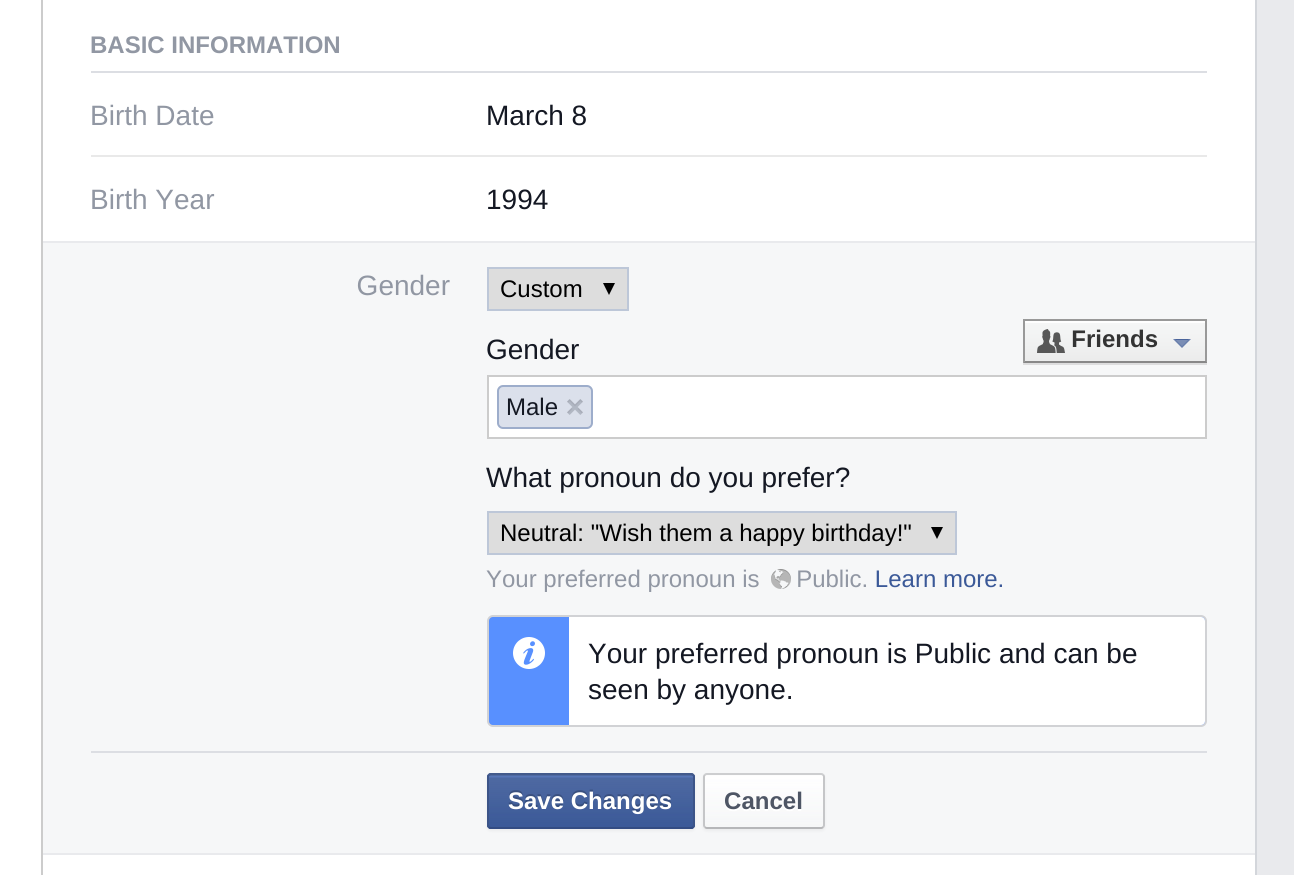{he,they} / {him,them} / {his,their}
Jeff Kaufman has an announcement on their blog, that I'd like to get behind here:
As part of the process of switching to ungendered pronouns, at some point people need to start being okay with using 'they' with named referents. I'm really optimistic about how 'they' is catching on among genderqueer people, but I'd like to help it along.
So: if you want to use singular 'they' to refer to me, feel free! I'm still happy to be referred to with standard male pronouns, but if you'd like to use 'they', that's equally fine.
Example usage:
- [Ross] lost their hat.
- When you see [Ross], can you give them this note?
- [Ross]'s borrowing a car, so they can drive themself there.
Clarifications, details(, and the real content of this post, let's be honest...):
(1) This is not a thing I feel very strongly about. (Kind of like vegetarianism!) If it makes your life harder to remember to (or you're in a social setting where it would be strange to) not use gendered pronouns, by all means do the easier thing.[1] But if it's easier for you to not have to remember to gender pronouns, or which way the gender goes, or whatever, then I'm not so attached to he/him/his to insist that you need to use those instead of they/them/their. I think I'd object to being referred to with female pronouns, though, so don't do that, please. (I'd probably be confused the first time it happens, but I've come around to believing that I'd probably be 100% behind this if it started happening in settings that didn't confuse everyone in a way that made my life annoying. Besides that, I don't think I'd actually object.)
(2) I continue to identify male; I'm merely coming out as male-and-don't-care-about-pronouns.
(3) If thou find thyself morally opposed to the impurity of using 'they' in the singular, I do sincerely hope that thou'st likewise sworn off the use of the singular 'you'. From whence thee take thy license to speak twentieth-century English, I too take my license to speak English of the twenty-first. (Though, if thou art in favor of traditionalism in language, thou'll certainly appreciate Douglas Hofstadter's On Purity in Language, which, despite the unfortunate position Hofstadter takes, is nevertheless a wonderful read.)
(4) No part of this is intended to trivialize the difficulties faced by people who do not enjoy the freedom to claim, with lightness, that the pronouns people use about them don't really matter that much to them. I acknowledge that my relative unconcern with the personal pronouns used for me is a good example of what some would call cisgendered privilege; it's all I can do here to try to use that privilege for some small good. (Here, in attempting to help normalize 'they' as a singular pronoun.)
(5) Relatedly, I'd like to head off objections that I'm appropriating from the genderqueer community here -- by partially adopting a gender-neutral pronoun -- with the following: You're wrong. Accomodating language, like accomodating design, is a social curb-cut[?], and it's basically impossible to appropriate the choice to use a curb-cut. (The linked post goes over some good counterexamples; this particular case isn't one of them.)
(6) [1]: At the end of a long post of "I don't care; do this or that, whichever you like.", I'll leave you with one suggestion: If you vaguely think that living in a world with nongendered language is a good idea, but that "it'll never catch on", or "it just sounds so weird", you don't need to jump on the train all at once. (I haven't.)
Instead, check out Jeff's list of uses of 'they' ordered from least weird to most weird, and if you're fine with "Someone in this office has their head screwed on wrong." (#1) and not "That woman's dropped their books on the ground." (#7), then consider just adopting the use-case one step weirder from where you're comfortable (which shouldn't sound too weird). You're doing the dual service of (1) gradually un-gendering your own language and (2) helping the people around you become slightly more comfortable with nongendered language.
(7) Down that same line, maybe consider changing your Facebook pronoun to 'they'[2], which you can do without changing your gender?

I did.
Once again, the idea -- and much of the contents of -- this post, are h/t to Jeff Kaufman, whose blog covers an enormous variety of things, almost all of which I find fascinating. (Gendered pronouns is only a very tiny fraction.)
